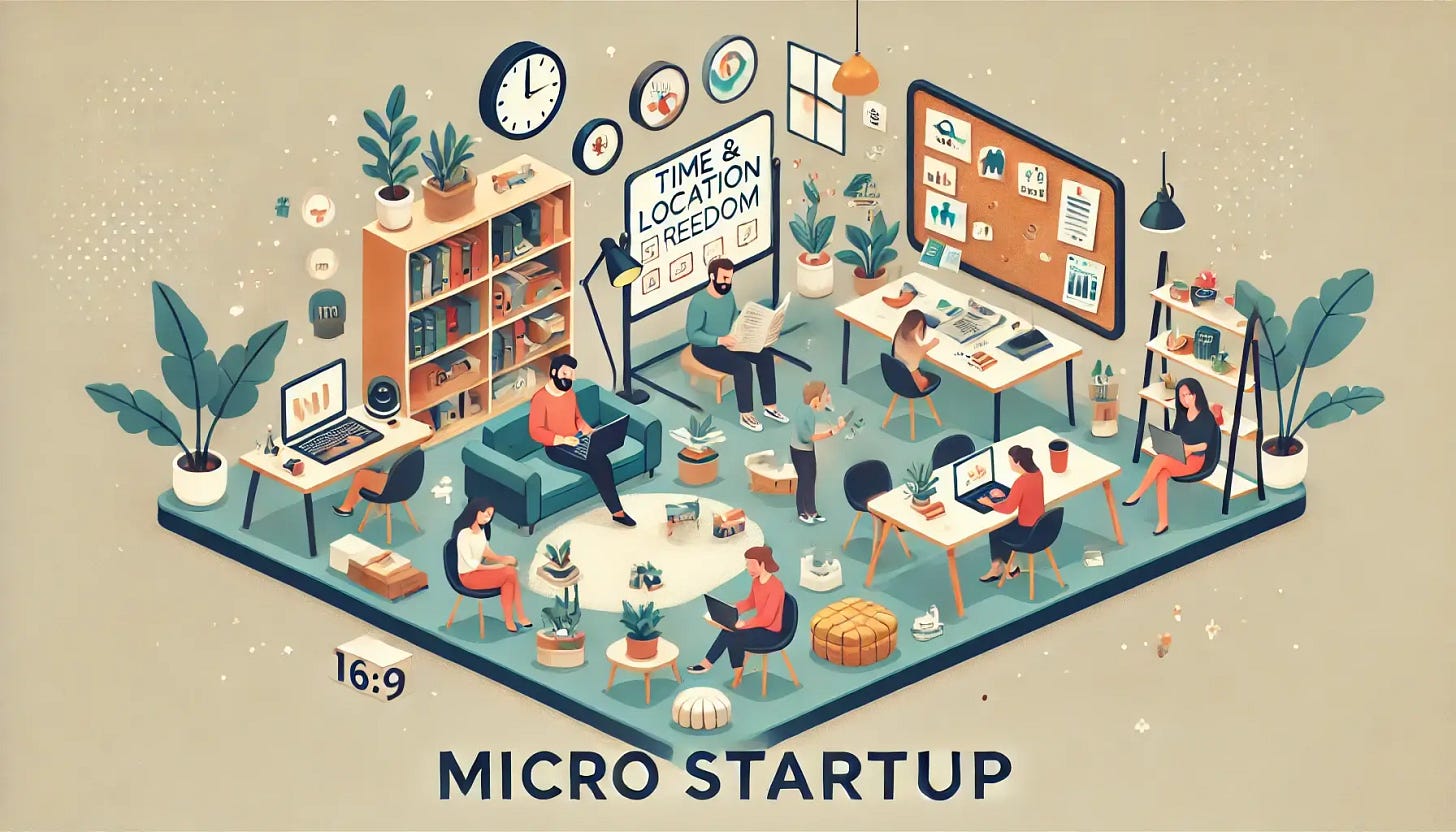What is a Micro Startup?
And how is it different from a traditional startup?
The startup world is full of news of people raising funds and getting massive valuations. Everyone is trying to build the next Unicorn (a startup valued at $1B or more).
I've worked as a digital marketing manager in many well-funded and highly valued startups such as Razorpay (a $7.5 Billion Dollar Company), Practo (a $1B company), Instamojo (a $200m company) and Exotel (a $500m company).
The harsh reality of such funded startups is that there is a very slim chance of these startups succeeding. They operate in Winner-Take-All markets. Their long-term survival is not guaranteed even if they are valued at a billion dollars.
Venture capitalists invest in these startups as a bet with the hope that it will become the next Google, Amazon, or Apple. In the process of raising multiple rounds of funding, the founder's shares are diluted to single digits over some time. The founder or co-founders rarely have more than 10% equity in their multi-billion dollar startups.
You've probably heard of many companies commanding multi-billion dollar valuations and eventually busting. The chances of success are extremely thin, founders often burn out within a few years of trying to build the startup, and most employees do not get an opportunity to sell their stock options at massive valuations.
There is no time or location freedom in building such a startup. These funded startups keep burning money to increase revenue. They are rarely profitable. Eventually, they expect to do an IPO and dump the shares on the retail investor while the early investors get an exit.
The founder's wealth is mostly paper, which can never be converted into real money. If a startup raises $300 million for a 10% equity sale, on paper they are worth $3B pre-money and $3.3B post-money (after the funding). If the founder owns 20% of the company, on paper, they say, the founder's net worth is $600 million but it's not the same as having assets and liquid net worth of a similar amount.
Most of these startups run on a narrative, a trend and when the trend goes away, they are not able to raise any money. Then in the long term, the startup shuts down or gets acquired by a bigger company. Many times the bigger company shuts down the project, fires the team and the products never see the light of the day.
Now let's stop the rant about traditional startups. Let's talk about Micro Startups.
What is a Micro Startup?
A Micro Startup has the following characteristics:
The company is usually owned by a single founder. The founder might give some equity to early team members, but the equity would be in single digits (less than 10%).
The Micro Startup doesn't need a fancy office. The startup can be run from a home office or a small office.
There are usually 30 team members or less.
There is time and location freedom for the team.
The goal is to make $1m/year in revenue or $100,000 a month with at least 30% profit margins. A Micro Startup might grow beyond that but should aim to achieve these numbers within 3-5 years of starting up.
The team doesn't have a toxic work culture or office politics. Hiring is done very carefully and the team is here for the long term. Doesn't switch jobs often.
Profit sharing is done more often than equity allocation.
The Micro Startup's branding and marketing are a result of the founder's brand.
The founder has a strong personal brand as an expert in a specific niche and has previous work experience in the field.
There is a very clear understanding of the problems and challenges in the market. The startup is not chasing fancy trends or the latest narrative. Everyone in the team is street-smart.
The founder and the team might have graduated from Ivy League colleges but it is in no way a requirement. Most of the team members do not have any fancy degrees or letters behind their names.
The business is profitable and long-term sustainable. The game is not to die ever. The goal is to grow slowly and steadily.
The team often has offsite meetings. It promotes friendship, bonding, and team spirit.
The founder has a big vision but that doesn't mean they rush to the goal and burn out in the process. A Micro Startup can become a Mega Startup someday in the future. The goal is to enjoy the journey while trying to get to the destination.
Now you get the idea. Doing business is supposed to be fun and rewarding. Not stressful with an end goal and always chasing a non-existent future. It's more present-oriented. As long as it generates enough revenue to let the founding team work on projects they love, it's a success.


